Description
A Clergyman’s Daughter is a book with a different world and a simpler writing style than anything Orwell has ever written. The main character is the daughter of a priest (Dorothy) who lives in a dry environment, that is, her father (priest)’s house. Dorothy is a girl who grew up under the dry and petrified teachings of her father. Dorothy, however, has a somewhat unique spirit.
A Clergyman’s Daughter represents a banal, dry Christian. The situation that the priest has created for his daughter and the problems that Dorothy is struggling with (such as debts and poverty) are the main mentality of the story, and Dorothy thinks only about these issues until she is forgotten and leads a normal life. In a part of the book, Dorothy is forgotten. And enters a new world.
A world that is completely different from the world of the past. And Dorothy can do it alone and helpless. There is a time when he does not even think about prayer. And the church in front of him is almost a dusty halo in his helpless mind. The church he has worked for since he was a child. In the story, Dorothy suffers from mental conflicts related to religion, poverty, her father, the church, and so on. Who has thought about them in the period of his oblivion.
In a chapter of the book, we see short, half-hearted conversations with the story’s homeless characters, including Dorothy. Where the cold of its streets penetrated me to the bone.
Dorothy’s view of the church and other matters is perfectly natural. Dorothy’s experience of living and working with the seasonal workers of London and the Chinese cluster, her aces and passers-by and her half-friends, and the bitter poems that clushers read at work weakened Dorothy’s faith in her father’s religious beliefs, and she realized that He does not have faith like in the past.
Dorothy mentions part of the story because she witnessed her parents make love. She hates it and can never bear a man hugging her.
He likens his father to a giant creature and a demonic trait that his mother (that beautiful little fairy) possesses. This hatred of her leads to escaping from cohabitation with men. And never marries. The reason is watching his parents. Which makes a small reference to Freud’s psychological theories.
The A Clergyman’s Daughter is a different work from George Orwell, author of Animal Castle and 1984, published in 1935. In this book, unlike many of his writings, Orwell has chosen a simple font to tell the story, but like his other works, he confronts the audience with a critical story that challenges the mind.
The Clergymans Daughter depicts the life of the daughter of a petrified priest who, though somewhat unique in spirit, grew up under the dry and petrified teachings of his father.
In a very special work, George Orwell spent about a third of the book describing a day in the life of “Dorothy” (the main character of the book) with all his details and beliefs, to prepare the ground for the continuation of the story, and after preparing The mind of the audience writes the rest of the stories easily; A unique work that has been controlled very quickly and slowly in different places.
The story goes that “Dorothy”, although he considered himself an extraordinary man of faith and, of course, never had laziness in the work of worship and church, and bore all the hardships, poverty and irresponsibility of his father, and even to many poor people. .. helps,
When he does not come home for a few days due to temporary forgetfulness, he is rejected by his father, like other people in the village who start making irrelevant words and making strange and slanderous slanders, and becomes a homeless tramp and enters a new world. Lays. A world that puts him in mental conflict over religion, poverty, his father, the church, and so on.
Part of the text of the priest’s daughter book
There was doubt in his heart. Issues he had not thought about until then. Was he able to return home and did he have the courage at all? Was he capable of confronting the people of Niphill? Although he did not like to think about these issues, is anyone able to return to a small town of less than two thousand people with so many labels of disgrace?
He could not decide. He thought for a moment that his escape was so foolish that it was possible that no one believed him.
Mr. Warburton, for example, was able to deny them all, and he certainly did, but moments later he remembered that Mr. Warburton had traveled abroad and could not be found unless the news was published in European newspapers.
The English author George Orwell has written novels known for their critical tone, The Priest Girl’s novel, based on his personal experiences of poverty. A novel that opens a new mind to the reader’s mind.
A Clergyman’s Daughter; A book in the shadow of masterpieces
George Orwell wrote about this book: “This book was just a writing for practice, I never wanted to publish it. “But I was under financial pressure.” In spite of all this, the daughter-in-law has been translated in many countries of the world and has been welcomed by the audience.
Priest Girl is written very simply in comparison to other novels, which often have special complexities. Freud’s psychoanalytic traces can be seen in this novel. The priest’s daughter, Orolder, tells the story of a girl named Namdoruti Herrera, and in the twists and turns of the story, expresses her protest to the Church of England.
Orolnam has taken his book from an excerpt from the novel “Ulysses” by the famous Irish author James Joyce.
Reviews and comments about the priest’s daughter
There are many reviews and comments about the novel. According to most critics, Wolverine’s writing of this book is aimed sharply at the Church of England and seeks to separate value from anti-Semitism. But another noteworthy point that critics have noted is the change in the main character of the novel.
The main character of the story Wolverd loses one of his personality principles during the novel. The principle on which his character is based; the faith. According to this group of critics, he intends to state that when a person loses a characteristic of this kind and importance, his vacancy will always be felt in his soul and life.
About the Author of The Priest’s Daughter: George Orwell; Author of anti-utopia cities
Eric Arthur Blair, a British writer and literary critic known as George Orwell, was born in 1903 in Motihari, India, then a British colony.
As a child, he moved to England with his mother and older sister and settled in Oxfordshire. Orolder occasionally saw his father as a child. He joined the Royal Indian Police in Burma in 1920 and served in the force for seven years. He has published his experiences in this period in the book “Days of Burma”.
Orwell was a prominent policeman, but he could not cope with the job and the British agents’ treatment of the natives, and he left the job. After leaving this job, he went to Paris and then to London.
Orolder London lived a hard life until he found a good job, and even left London orphanages. His experiences during these years led him to take a special look at the phenomenon of poverty. A look that is strongly felt in the novel ” A Clergyman’s Daughter”.
He went to Spain in the 1930s to fight against fascism. He was wounded in this war and the wounds caused by this war remained with him for the rest of his life. The book “Greetings to Catalonia” is based on his experiences during this period.
George Orwell is the author of two best-selling books of the twentieth century, Animal Farm and 1984. Experts have placed these two books in the category of anti-utopia books. The utopia is a place where evils and darknesses completely overpower goodness and man falls into regression.
Other works by Orolmi include the novels “Aces and Passes”, “Fresh Air”, and “Take Care of the Aspidistras”.
George Orwell had a short life and died at the age of 46. His body was cremated at his request, and his ashes were buried in an anonymous cemetery near Oxford.
Well … “Dorothy” is the name of a girl whose father is a church pastor and lives in a very poor family. At the beginning of the story, what we see from him is complete faith in God, Christianity and the Church.
As for the extent of his faith, we encounter a scene in the very first few pages: When Dorothy is distracted in the middle of a prayer service, she pulls out a hairpin and inserts it into her arm to punish herself and divert her attention to prayer. Gather religious ceremonies.
Dorothy also had other qualities, she was very hardworking, she helped everyone, she stayed up all night for the church charity show, she made clothes for the children who were going to perform the show, and she also served her father like a maid.
That’s all we need to know for this analysis of Dorothy’s character. In the course of the story, Dorothy encounters something that happens, the successive tasks and pressures that she brings out of her brain, and a few days later, she seems to wake up and her memory is disturbed.
He forgets everything and wakes up in the middle of a place far from his village and asks “Who am I?” And a little later he realizes that he is a human being, a woman, and soon he remembers how to read words from the shop windows.
From now on, much of the story is spent on poverty and homelessness, until Dorothy remembers everything at once and returns to her village to find that her father has died. The bottom line is this: Dorothy finds everything.
He remembers his name, his thoughts, his father and the church, but the only thing he does not remember though he remembers is his “faith.”
Yes, Dorothy, after this forgetfulness and recovery of memory, after spending a long time in poverty and homelessness, can no longer regain her faith when she remembers how much she once believed in the existence of God, heaven and hell and their prophet Jesus Christ.
Dorothy is completely unbelieving at the end of the book and no longer believes in what her religion says. But this, he says, is one of the worst emotions. Although Dorothy says her eyes are open to the truth, she feels a void of faith in her heart and is no longer happy.
Life has not become meaningless to him, but he can no longer categorize his new thoughts, and he can no longer fill the void in his heart in disbelief.
Orwell’s message in this novel seems a little different from what was expected of him. Orwell often criticizes religion and its principles through the language of the characters in this story, but in the end he has another message: if people leave religion with faith, the place of faith will remain as a hole in their heart and will make their lives sad.
However, this may be different for people of different ages and for each community, or even the extent of the impact and the size of the hole may not be the same among different people.
Religious teachings are so attached to the human heart that removing them will also relieve part of the heart of tension, and the residual wound, conscious or unconscious, will be painful.
Now the question is: Are the believers wrong to continue their faith?
The Priest’s Daughter is the life of a girl named Dorothy, who grew up under the tutelage of her father, a priest in a remote town in England. Dorothy is grappling with many problems, such as poverty and debt, which her father is the cause of.
She lives in a world where, as a priestess, she has to help the poor and needy, and in addition to taking care of the priest’s house, she also takes care of the church and raises money for the church and needy families.
He lives in a world that is completely preoccupied with the church and its affairs and has forgotten itself. But in a rare case, he loses his memory for a short time and leaves London a few days later. After Dorothy’s absence, there are many rumors in the city that she ran away with a man. After the rumors spread, his father rejects him and does not accept him at home, and Dorothy is forced to face a new world that is completely different from her former world.
1- Introducing the book A Clergyman’s Daughter on YouTube
2- Introducing the book A Clergyman’s Daughter in Aparat

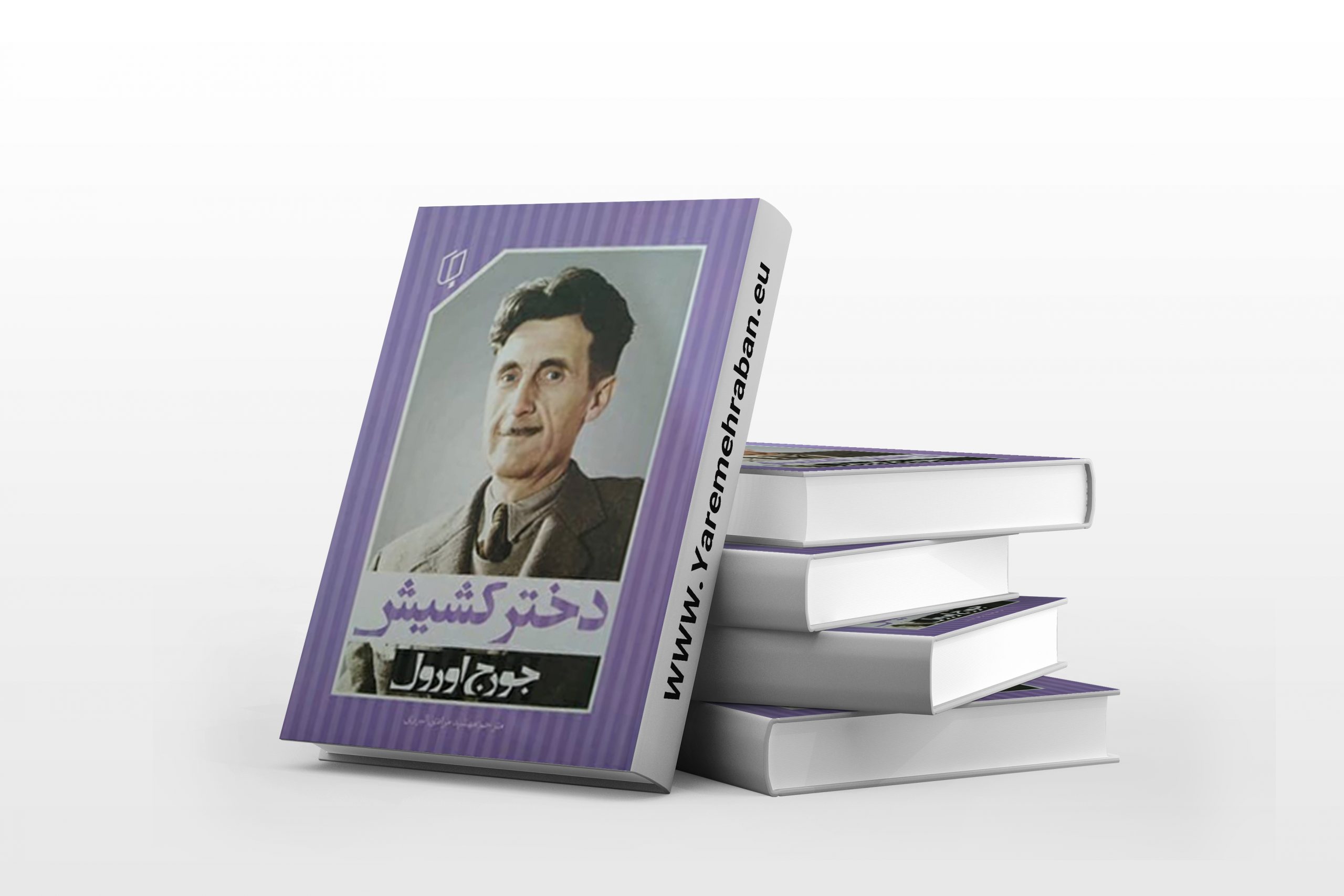
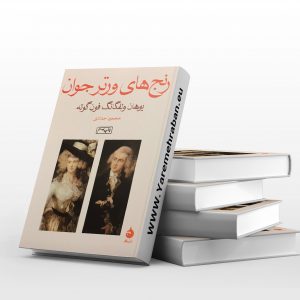
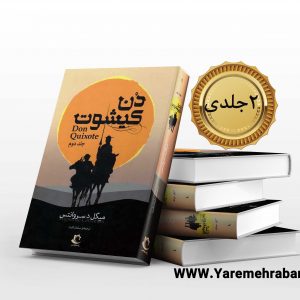
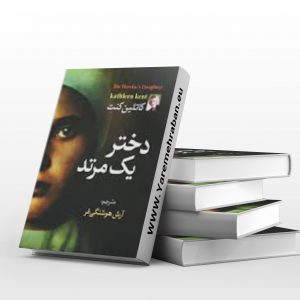
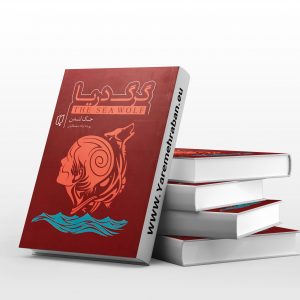
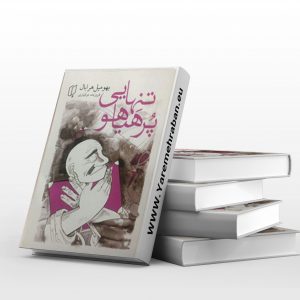

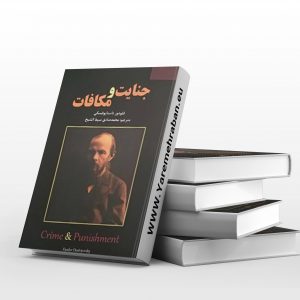
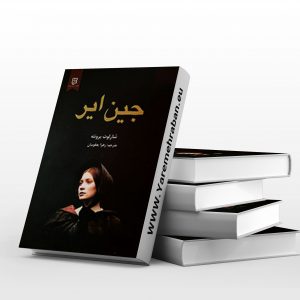
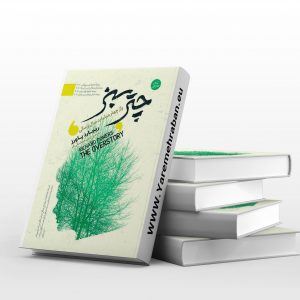
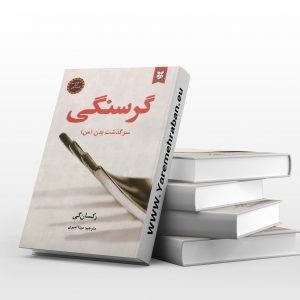


Reviews
There are no reviews yet.